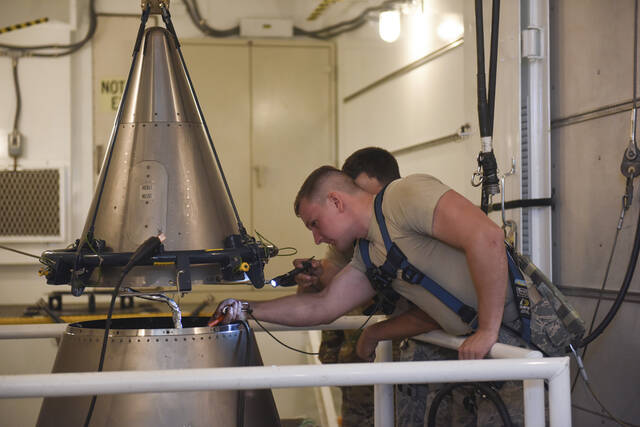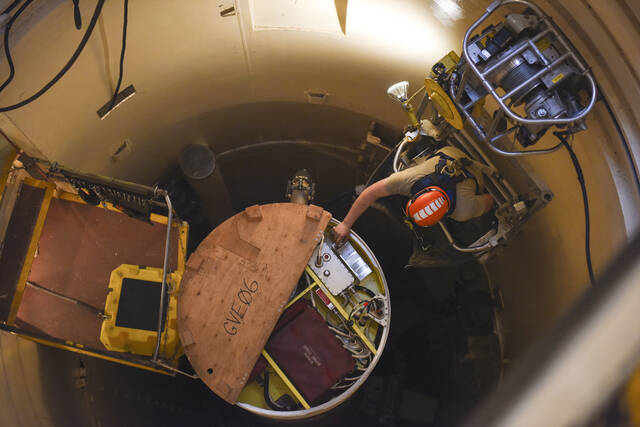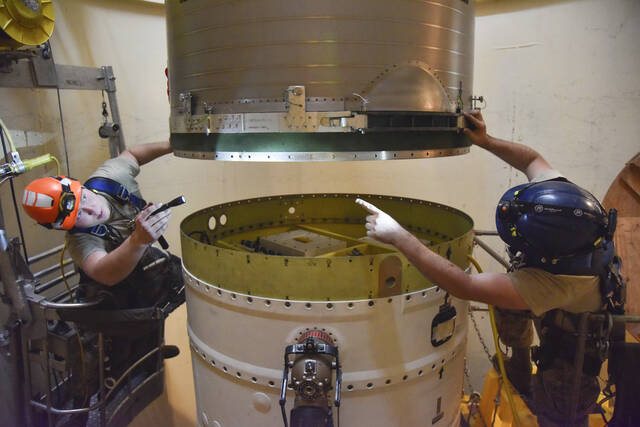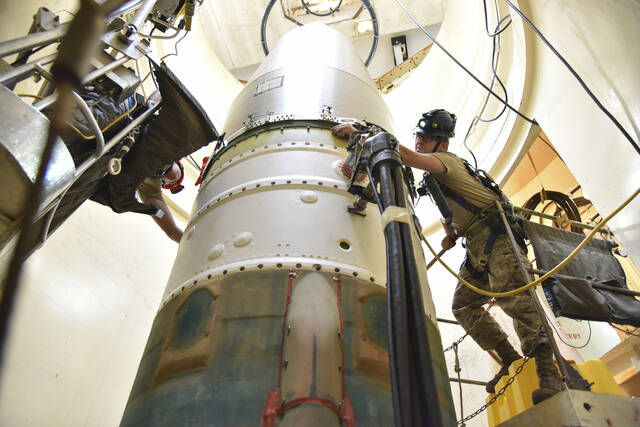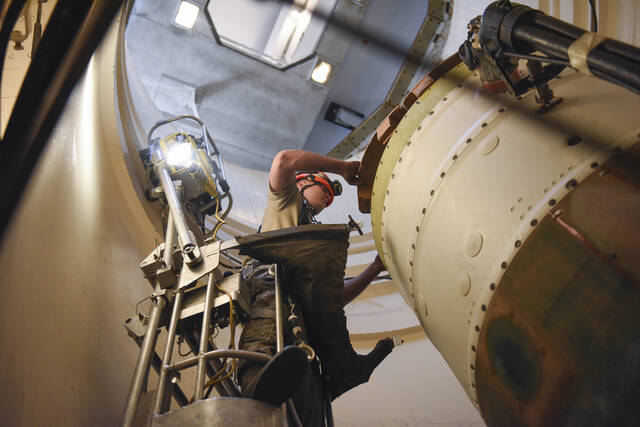Air Force expands cancer review of nuclear missile personnel
WASHINGTON — The Air Force’s review of cancers among its nuclear missile corps will include all personnel who worked on, guarded, supported or operated the nation’s ground-based warheads, Air Force Global Strike Command announced Wednesday.
Nine officers who had worked as missileers — the airmen who launch the warheads from underground silos and control centers — at Montana’s Malmstrom Air Force Base were diagnosed with with non-Hodgkin lymphoma, a type of blood cancer, Lt. Col. Daniel Sebeck of U.S. Space Force reported last month in a briefing obtained by The Associated Press.
Since that briefing, more missileers and missile support crew have come forward to the AP and other media outlets to report they, too, have been diagnosed with either non-Hodgkin lymphoma or other types of cancers.
The Air Force review will extend beyond Malmstrom to include F.E. Warren Air Force Base in Wyoming and Minot Air Force Base in North Dakota. Together the three bases operate 450 silos that house the nation’s arsenal of ground-based nuclear warheads carried by Minuteman III intercontinental ballistic missiles.
Malmstrom was one of the sensitive military locations over which a suspected Chinese spy balloon loitered as it transited the United States earlier this month.
The “Missile Community Cancer Study,” to be conducted by the Air Force School of Aerospace Medicine, will look at all ICBM wings and all Air Force personnel who support the ICBM mission. It will review environmental factors at the missile bases and silos, and examine “the possibility of clusters of non-Hodgkin’s lymphoma” among missileers and those who maintained, guarded and supported the bases, the head of Air Force Global Strike Command, Gen. Thomas Bussiere, said in a statement.
The review will look at active-duty medical data and the Department of Veterans Affairs’ cancer registry data, mortality data and public cancer registries. Col. Lee Williams, the command’s surgeon general, said there was not yet a timeline for the study.
The Air Force has also established a website to address the missileer community concerns.
Remove the ads from your TribLIVE reading experience but still support the journalists who create the content with TribLIVE Ad-Free.

